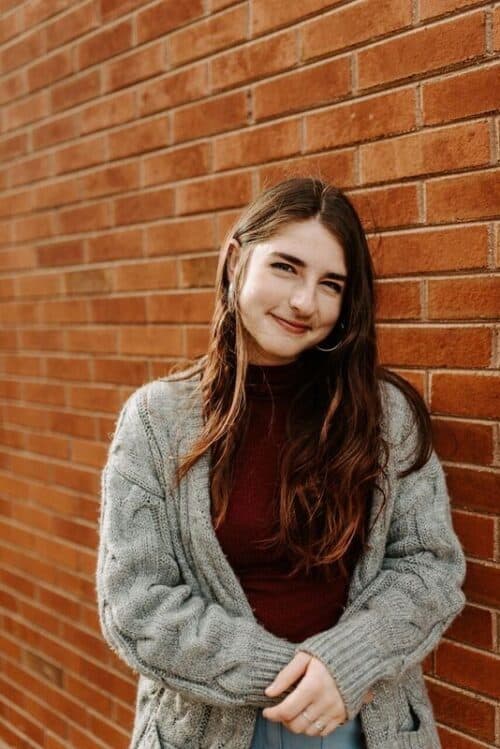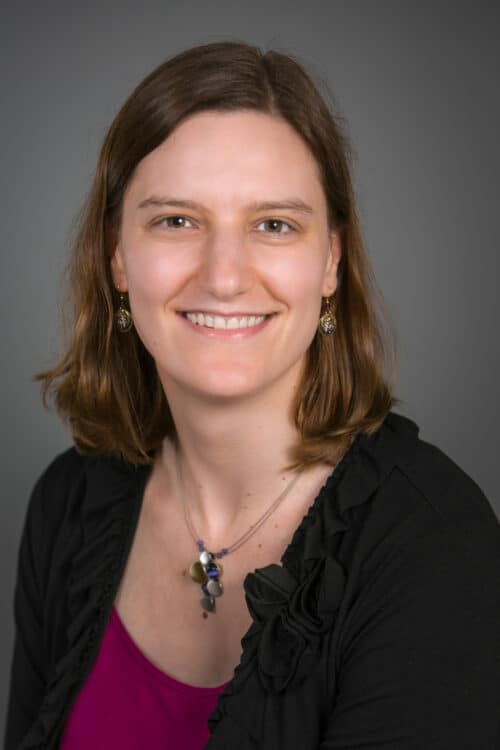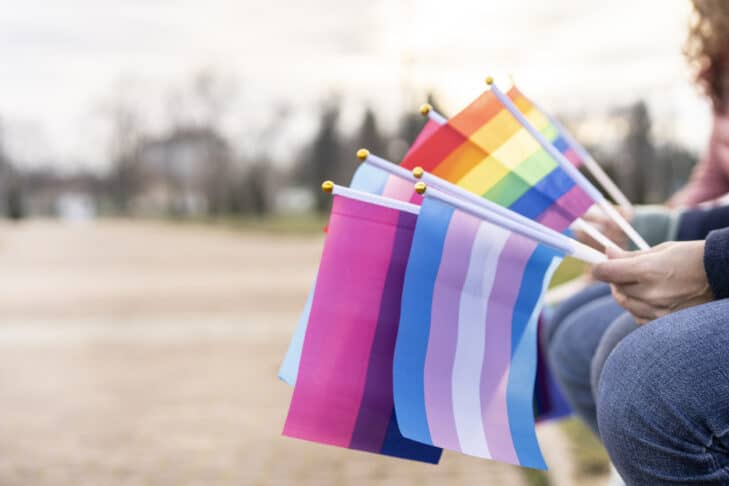CJP, at its most basic level, is an organization that strengthens the Jewish community in Greater Boston and across the world through programming, grant-making, and relationship building. We believe that this work and our mission must include those who have previously been, in many ways, closed off from our community.
Unfortunately, many Jews in the LGBTQIA+ (lesbian, gay, bisexual, transgender, questioning/queer, intersex, asexual/aromantic, plus) community and their loved ones have felt—and often still are—shut out, whether intentionally or unintentionally, from Jewish organizations. For example, something as basic as a form asking for a mother’s name and a father’s name, rather than parents’ names, can make someone in an LGBTQIA+ family feel like they don’t belong.
CJP decided to invest in supporting our Greater Boston community in creating more inclusive environments by sponsoring the Keshet Shivyon Equality Cohort, a yearlong training and coaching program for Jewish organizations. The program guides participants on their journey to inclusion and affirmation for LGBTQIA+ individuals and their loved ones. CJP took part in the cohort as well and completed our participation after examining and making improvements to our programs, policies, and culture.
We are two of CJP’s participants in the cohort, Nora as a member of the LGBTQIA+ community and Stacie as an ally. We believe this is a model for how we should do this work—involving members of the community in identifying both the problems we’re facing and their potential solutions through lived experience, while also not placing the sole burden and responsibility on a marginalized community. All of us have a role to play in making sure we are fostering a culture of belonging.
After accomplishing the yearlong training, we’d like to take a moment to celebrate our progress at CJP. We have:
- Launched an LGBTQIA+ affinity group for staff
- Made free menstrual products available in all bathrooms at CJP
- Assessed our marketing strategies to ensure greater representation
- Examined our events processes to ensure equitable access for people of all genders (which is a continuing process)
On top of this, we are committing ourselves to continuing this work going forward.
Our personal experiences have shown us that Jewish organizations are at their best when they are spaces where everyone feels they belong. Ensuring that our organization is a space that inspires happiness, growth, and fulfillment for all takes work, and our internal team is ready to make our goals for institutional change into a reality. CJP hopes to lead by example through our specific actions and our sponsorship of this cohort.
For Stacie, who is the director of caring and social justice at CJP, participation in this cohort was deeply intertwined with her commitment to social justice and tikkun olam (repairing the world). She was moved by the story Keshet CEO Idit Klein told about how CJP was the first Jewish Federation in the country to support her organization and how much that meant at a time when LGBTQIA+ inclusion was barely on the radar in most Jewish communities. Stacie also appreciated the opportunity to learn about issues that she never considered before. As with many things, we must do the work internally first if we want to foster allyship in the broader community.
Nora stepped into this work through her previous role as a manager on the partnerships and services team. She was grateful to be able to learn more about Keshet as a resource, both personally and professionally, and was excited that CJP made the commitment to not only sponsor this work, but to participate ourselves. It’s exciting to see that the changes we’ve made within this last year have a ripple effect, and there is a hope that these changes will continue to strengthen the desire for education and empathy across a multitude of Jewish spaces.
While the CJP cohort members have succeeded in making LGBTQIA+ inclusion more top of mind, there are still things that CJP needs to work on and implement to continue to create representation and advancement for the community. The tail end of the yearlong cohort also brought into focus how political issues outside of LGBTQIA+ causes can impact inclusion. While not all LGBTQIA+ Jews have the same beliefs, we’re aware that many LGBTQIA+ Jews can be made to feel marginalized in their Jewish spaces. LGBTQIA+ Jews (similarly to folks who hold marginalized identities of any kind) are sometimes asked to represent or justify one of their identities in ways that others are not, including in relation to Israel. Cohort members recognize that this means that global events can create effects that can often be difficult to balance. We accept and embrace the fact that creating inclusion and belonging will be an ever-evolving and ongoing journey. Specifically, CJP is:
- Planning to have Keshet do additional training with segments of our staff
- Working on an event planning checklist so that inclusion becomes baked into our process, making sure everything we create is made with sensitivity to LGBTQIA+ needs—from marketing materials to registration forms to rooming requests and more
Though colleagues are well intentioned, all of us have blind spots, so training and checklists are two steps CJP is taking to reduce unintended harm.

While CJP was focused on our workplace environment, synagogues, schools, camps, and any place where Jews come together, we can also take steps to be fully inclusive of our LGBTQIA+ community. Each organization can look at their own policies, practices, and culture to find ways to improve. Individuals can educate themselves. Thankfully, Keshet is here with a host of resources and support on its website or through trainings.
As CJP employees who participated in the Shivyon Cohort, it’s deeply important to us, especially right now, to be supporting all types of diversity, equity, inclusion, and belonging work across our Jewish institutions. Shining light on and lifting up belonging and equity for LGBTQIA+ employees, teachers, students, clergy, etc., is one way that we can continue to build a brighter, more inclusive future for all those in our wonderfully diverse community.

Nora Stolzman is the manager of the Community Impact Grant and Miriam Fund grant programs at CJP. She is a creative thinker with significant experience facilitating community conversations and supporting programmatic and relational growth. She is deeply passionate about building environments of inclusivity, belonging, and joy. In her free time, you will find her painting or doing yoga.
Stacie Garnett is the director of caring and social justice at CJP. She is an experienced nonprofit and philanthropic professional with a background in community organizing, organizational development, and experience bringing people together to achieve their missions more effectively. Stacie has a passion for supporting diversity and inclusion, which has been a theme throughout her career.


